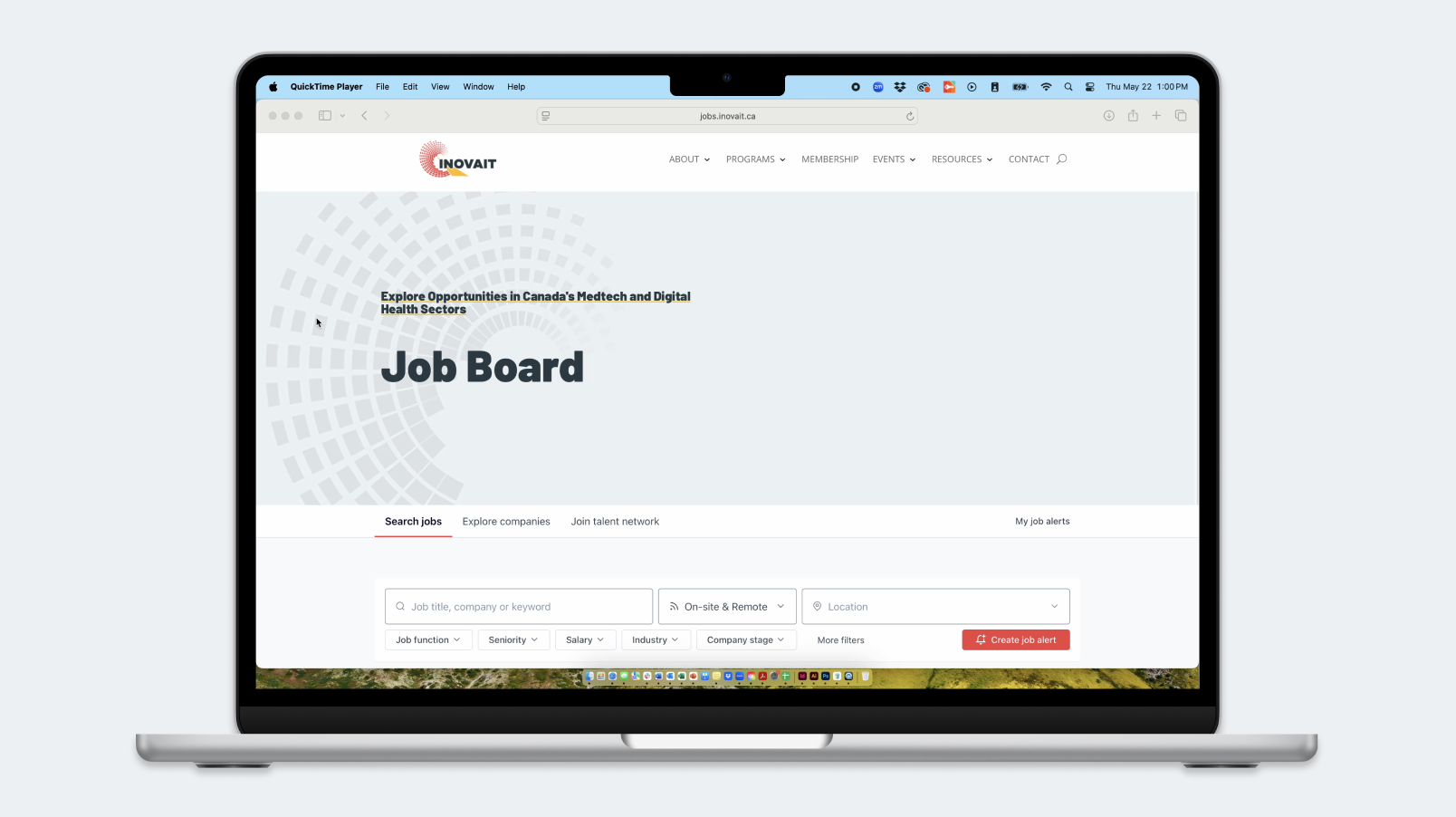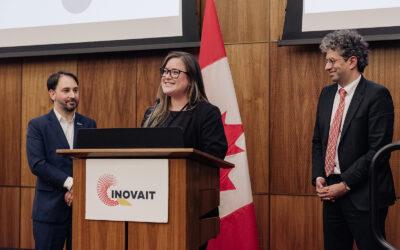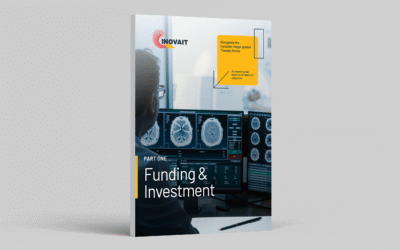INOVAIT, the Canadian image-guided therapy (IGT) and AI network, is pleased to announce the launch of the network’s job board—a curated platform showcasing job opportunities from across Canada’s exciting medtech sector.
Developed in response to increasing demand from our members and job seekers, the INOVAIT Network Job Board offers job seekers direct access to high-impact roles at some of the country’s top companies working in emerging medical technologies. Updated daily, the platform features listings from across the INOVAIT network and is designed to help talented professionals launch or advance their careers in a home-grown company right here in Canada.
Job seekers can browse postings and filter by job function, seniority, company size, stage, location, and work arrangements such as remote and hybrid work. Candidates can also join the INOVAIT Talent Network, which uses resume-matching technology to automatically connect qualified candidates with relevant opportunities. When there’s a strong match, the platform can directly introduce the candidate to the hiring company to accelerate the recruitment process. Users may also set job alerts to stay informed when new roles matching their interests become available.
“As our industry members scale, they create high-quality jobs for Canadians and need access to top-tier talent from across our country,” says Raphael Ronen, co-executive director of INOVAIT. “This job board is designed to help bridge that gap—connecting exceptional individuals with companies driving innovation in medtech and artificial intelligence.”
“The INOVAIT Network Job Board is a great initiative that will bring value to the medtech community,” said Dr. Saumik Biswas, CEO & co-founder of Tenomix, an INOVAIT member company. “At Tenomix, we’re thrilled to see this kind of support for innovative Canadian companies and talented professionals, and we’re grateful to be part of a network that continues to invest in meaningful tools for growth.”




